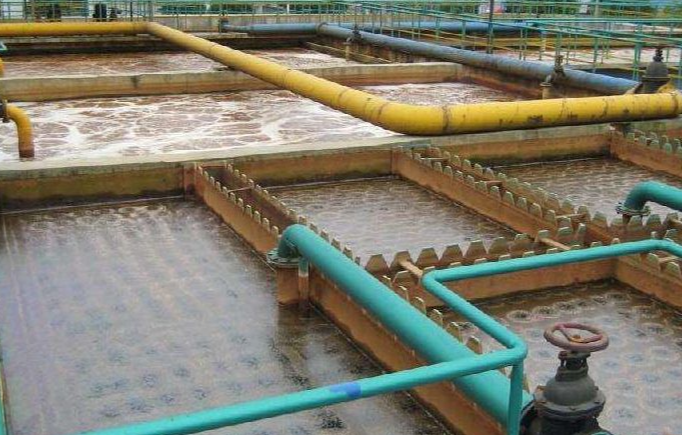The harm of domestic sewage
2. The difficulty of borrowing funds for sewage treatment
The capital demand of urban sewage treatment is huge, and bank loan is an important source of sewage treatment funds. Bank loans are divided into commercial bank loans and state development bank loans. The capital source of commercial banks is the deposits of residents and enterprises, most of which are short-term funds. Although some medium and long-term loans can be made, the proportion should not be too large. The use of funds in commercial banks requires the unity of the "three characteristics" of security, liquidity and profitability, and the use and return of sewage treatment funds is difficult to match the "three characteristics" of commercial banks. Therefore, it is difficult for commercial banks to make loans for sewage treatment projects.
Problem solving
(Crack method 1) Increase financial allocation
Part of the funds for urban sewage treatment, under the conditions of socialist market economy, must also be given necessary subsidies by the government, for many reasons. The main problems are as follows: 1, the price demand elasticity of sewage treatment is generally small and the government "monopoly" operation, and its fee formulation must consider the affordability of residents, rather than relying on competitive prices to completely solve the problem of facility construction and enterprise development. (2) The services provided by sewage treatment are public, and the use of many facilities is difficult to calculate, so that their service charges can not directly enter the market for equivalent exchange, but can only become a part of public consumption. (3) The services provided by sewage treatment have a wide range of social and external economy, and when measuring its investment benefits, the first is the social benefits.
The allocation of municipal sewage treatment by the state finance mainly includes the investment of capital construction arrangement, the special fund allocated by the central finance and the local financial allocation. Investment in capital construction arrangements shall be divided into two types: within the state budget and raised by local governments themselves. The amount of capital construction investment within the State budget shall be determined by the central government and transferred by the Ministry of Finance to the State Planning Commission for unified arrangement. Local self-financing investment in capital construction refers to the investment arranged by local self-financing funds within the quota prescribed by the State. The central and local financial appropriations, one is to allocate a certain amount of funds every year according to needs, as a special fund for sewage treatment; The other is to grant according to the project quota, the project is completed, the subsidy is stopped.
(Crack method 2) Increase the intensity of enterprise self-financing
Under the condition of market economy, sewage treatment can realize the reproduction of sewage treatment only when its value is transformed into the cyclic capital return in its construction and operation activities. According to the requirement of the law of value, the input and output of sewage treatment are rationalized to the new order of the market economy, which is an objective requirement to speed up the urban sewage treatment in our country. Sewage treatment charges should not be a temporary financing measure, but a market-oriented way to achieve sewage treatment fund compensation, and it is also an economic means to regulate the rational use of sewage treatment facilities.

For the self-raised funds for sewage treatment, under the conditions of socialist market economy, the sewage treatment fee standard shall be formulated in accordance with the law of value, and the production development fund, fixed assets depreciation fund and major repair fund shall be drawn from the business income in accordance with the provisions of the State. Sewage treatment units must not only rely on their own strength to complete simple reproduction and expanded reproduction, but also pay taxes to the state. Therefore, the reasonable charge of sewage treatment must be built on the basis of reasonable cost and reasonable profit rate.
The reasonable cost of sewage treatment fees should generally include production costs, operating costs, depreciation of fixed assets, major repair funds, loan interest, etc. Among them, the depreciation rate of fixed assets should be appropriate, and the practice of excessively long depreciation life and low depreciation rate should be changed to avoid the bright profit and actual loss of enterprises. The reasonable profit rate of sewage treatment charges means that the approval of profit rate should take into account the reasonable welfare and necessary accumulation of enterprises, but also consider the characteristics of small elasticity of sewage treatment charges and strong social service, and prevent the use of its monopoly to pursue excessive profits. In order to prevent the burden imposed on users by monopoly, the government can restrict operators through administrative and economic means, so that their possible profits do not exceed the average profits of the whole society.
- ABB
- General Electric
- EMERSON
- Honeywell
- HIMA
- ALSTOM
- Rolls-Royce
- MOTOROLA
- Rockwell
- Siemens
- Woodward
- YOKOGAWA
- FOXBORO
- KOLLMORGEN
- MOOG
- KB
- YAMAHA
- BENDER
- TEKTRONIX
- Westinghouse
- AMAT
- AB
- XYCOM
- Yaskawa
- B&R
- Schneider
- Kongsberg
- NI
- WATLOW
- ProSoft
- SEW
- ADVANCED
- Reliance
- TRICONEX
- METSO
- MAN
- Advantest
- STUDER
- KONGSBERG
- DANAHER MOTION
- Bently
- Galil
- EATON
- MOLEX
- DEIF
- B&W
- ZYGO
- Aerotech
- DANFOSS
- Beijer
- Moxa
- Rexroth
- Johnson
- WAGO
- TOSHIBA
- BMCM
- SMC
- HITACHI
- HIRSCHMANN
- Application field
- XP POWER
- CTI
- TRICON
- STOBER
- Thinklogical
- Horner Automation
- Meggitt
- Fanuc
- Baldor
- SHINKAWA
- Other Brands




































































































































